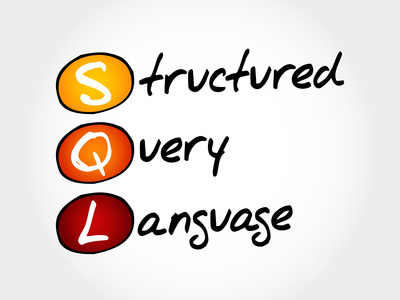Our expert trainers can help you get the best results.
If you would like any further information please contact one of our training advisors.

Structured Query Language, or as it more usually known SQL (pronounced Sequel), is a special-purpose database programming language. It allows you to manipulate rows and columns of data from databases organized much like a spreadsheet and to analyze the fields (columns) and produce results tables. These results can then be displayed as management reports, graphics and charts and fed into a spreadsheet program for further analysis. The list below shows some of the key reasons to learn SQL.
SQL started out in the early 1970s, when IBM engineers designed the first version in order to manipulate and retrieve data stored in the company’s database system. The two pioneers of SQL originally gave it the name SEQUEL, though later they had to change it due to trademark issues. SQL has subsequently become an official standard for ANSI (the American National Standards Institute) and ISO (the International Organization for Standardization).
1 – Data Mining
Learning SQL will allow you to unearth information from data with greater efficiency. Using simple queries you can identify specific data at time intervals, view update events, monitor table activity, and so much more. Extracting key trends and performance indicators from the mass of data that is collected allows a business to operate more effectively.
2 – Data Manipulation
SQL is well suited to data manipulation. Because it allows you to intereact and view the data means you’ll have an easier time testing and manipulating the data. Also data stored in SQL is dynamic, meaning it can be changed and manipulated at any time using basic queries.
3 – Combine Data from Different Sources
Bringing together data from two or more sources can be a time-consuming and scary task. However, SQL makes the process a snap supporting simple “unions” in which the specified fields or entire databases are joined.
4 – Manage Large Collections of Data
How to manage large amounts of datas up to millions of records? Ordinary spreadsheet programs can be used to manage small-to-medium-sized pools of data, but you need a more powerful solution when handling excessively numerous records. Fortunately, SQL can handle data pools greater than 100 million records making it the go to choice for data analysis.
5 – Client/Server language
SQL is used to connect front end computers (clients) and back end databases (servers). Thus, supporting the client-server architecture used extensively in business applications.
6 – Internet usage
SQL is used in the three tiered Internet architecture comprising of client, application server and a database. This architecture is used to support powerful web applications such as banking or shopping websites and even simple WordPress blogs.
7 – SQL Programmers are Sought After
You won’t have a problem finding a job as an SQL programmer. Accorsing to industry job websites there are more SQL programming jobs in 2017 than any other type of programming language, including Java, JavaScript, C+, Python, C++, and PHP.
These are some of the umpteen reasons to get familiar with SQL, as interacting with and processing data are key skills in business today.